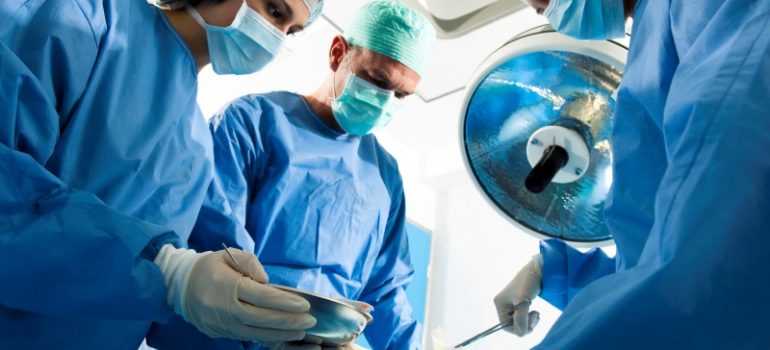
Pandemic Validates ASCs’ Importance to Integrated Healthcare Delivery
Categories: blog
The COVID-19 pandemic placed enormous strain on the country’s healthcare delivery system. As emergency rooms filled with COVID-19 cases, hospitals implemented strict COVID protocols and converted available spaces to the treatment of COVID patients and implemented safeguards to limit the spread of the virus.
One of the outcomes created by COVID-19 was the cancellation of many elective in-patient surgical procedures normally performed by the hospital surgical staff. Hospitals simply lacked the space to properly safeguard the patients who were scheduled for procedures like anterior hip replacements or knee replacements.
At the height of the pandemic, some Ambulatory Surgery Centers (ASCs) across the country temporarily halted operations to provide resources and personal protective equipment to hospitals, while others collaborated with the hospitals in their communities to provide surgical services to patients in a clean, COVID free environment. CMS also stepped in at this time, as part of its Hospital Without Walls initiative, and allowed ASCs to be temporarily designated as hospitals so they could provide inpatient care for longer periods than they were previously allowed. The unplanned forcing of inpatient procedures to outpatient facilities has focused attention on ASCs’ place in the healthcare delivery system.
For example, surgeons who had not previously considered performing cases in an outpatient setting have now started transitioning appropriate cases to those settings, and some ASCs are now seeing an increase in surgeons seeking privileges at their centers.
Additionally, hospital administrators are seeing that their patient populations are more accepting of ASCs and the level of care that they receive there. This is supported by CMS numbers that show some of these procedures, such as anterior hip replacement, are less invasive procedures that lend themselves to an outpatient setting. Choosing the correct type of procedure to perform in an ASC is one of the factors that leads to better outcomes at a lower cost.
While hospital administrators may not currently view ASCs as complete partners in their business strategy, it appears they are comfortable with the value of the business relationship they offer. Cognizant of the lessons learned from the pandemic, they realize that keeping services that are aligned with the ASCs’ strengths out of the hospital allows the hospital to keep its core services running more smoothly and eliminates them managing the cancellations of elective surgical procedures.
It is now incumbent on the ASCs to maintain the level of patient care and outcomes they have established with their hospital partners. To do this requires ASC administrators to be able to plan long term and react quickly to changes in demand as evidenced by the pandemic.
The most cost-effective way to be sure that your ASC has the right equipment is to consider purchasing refurbished digital imaging equipment. For example, the OEC 9800 C-Arm with 12” image intensifier – the c-arm most familiar to many orthopedic surgeons and the standard from which many of its competitors are measured – is available at a considerable savings. A refurbished OEC 9900 Elite C-Arm with 12” image intensifier can also render your ASC a significant savings over acquiring a new system.
If you have considered renting or purchasing a refurbished c-arm or mini c-arm in the past but just weren’t sure if it was the right fit for your ASC, now may be the time to revisit the idea.
Bluestone Diagnostics, Inc. has over twenty years of experience in selling and renting refurbished diagnostic imaging equipment, including mobile c-arms, mini c-arms, digital portable x-ray systems, ultrasound systems and other modalities. That experience includes a hands-on, consultative approach that will enable you to evaluate your equipment needs so you can make an informed decision. Contact us at (877) 904-1904 so we can help you determine your best options.
